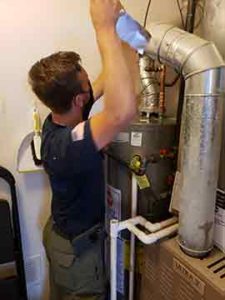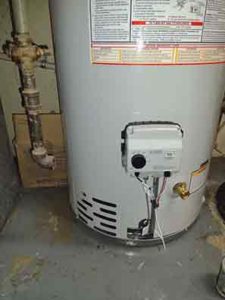Reasons Why There May Be No Hot Water Coming Out of the Shower
Imagine stepping into the shower, ready to relax and enjoy a warm, soothing stream of water, only to be greeted by an icy cold surprise. It can be incredibly frustrating when there is no hot water coming out of the shower, especially during the chilly winter months. If you find yourself in this situation, fear not. Here we will explore the various reasons behind this issue and discuss potential solutions.
1. Malfunctioning Water Heater
One of the most common causes of no hot water in the shower is a malfunctioning water heater. If your water heater is not functioning properly, it may not be able to heat the water to the desired temperature. There could be several reasons why your water heater is not working:
- Thermostat Issues: The thermostat controls the temperature of the water. If it is set too low or is faulty, it can lead to insufficient hot water.
- Heating Element Problems: Electric water heaters have heating elements that heat the water. If these elements are faulty or burned out, they may need to be replaced.
- Sediment Buildup: Over time, sediment can accumulate at the bottom of the water heater tank, reducing its efficiency and ability to heat water. Regular maintenance and flushing can help prevent this issue.
- Gas Supply Issues: If you have a gas water heater, ensure that the gas supply is turned on and functioning correctly.
If you suspect that your water heater is the culprit, it is advisable to contact a professional plumber or a plumber who specializes in water heater repairs to diagnose and fix the issue.
2. Water Heater Size
The size of your water heater plays a crucial role in determining the amount of hot water available. If your water heater is too small for your household’s needs, it may struggle to meet the hot water demand, resulting in insufficient hot water in the shower. Consider the number of people in your home and their hot water usage patterns. If your water heater size is inadequate, upgrading to a larger capacity unit might be necessary.
3. Plumbing Issues
Problems within the plumbing system can also lead to a lack of warm enough water in the shower. Several plumbing-related factors can cause this issue:
- Blocked Hot Water Pipes: Mineral deposits, rust, or other debris can accumulate in the hot water pipes over time, obstructing the flow of hot water. Flushing the pipes or seeking professional pipe cleaning services can help resolve this issue.
- Pressure Imbalance: If there is a significant pressure imbalance between the hot and cold water pipes, it can result in insufficient hot water reaching the shower. A plumber can adjust the pressure balancing valve to rectify this problem.
- Faulty Mixing Valve: The mixing valve in the shower controls the proportion of hot and cold water. If it is malfunctioning or incorrectly set, it may prevent hot water from flowing properly. A plumber can inspect and repair or replace the mixing valve, if necessary.
If you suspect that the plumbing system is causing the lack of warm water in your shower, it is recommended to contact a professional plumber to assess and resolve the issue.
4. Water Supply Issues
Issues with the water supply itself can potentially disrupt the hot water flow to your shower. Consider the following scenarios:
- Water Heater Maintenance: If your water heater has not been properly maintained, it may lead to problems in providing sufficient hot water. Regular maintenance, such as flushing and descaling, can help improve the performance of the water heater.
- Water Supply Interruptions: Check if there are any ongoing water supply interruptions or repairs in your area that could be affecting the hot water availability. Temporary disruptions can occur due to maintenance work or plumbing repairs in the neighborhood.
- Water Leaks: Hidden water leaks can reduce water pressure, affecting the flow of hot water to your shower. Inspect your plumbing system for any signs of leaks and address them promptly.
If you suspect that the problem lies with the water supply, it may be beneficial to contact your water utility company or a plumbing professional to investigate and resolve the issue.
5. Other Considerations
While the reasons mentioned above are common causes of not hot enough water coming out of the shower, there can be other factors at play. Evaluate the following:
- Seasonal Temperature Changes: During colder months, the incoming water temperature from the main supply line might be cooler, resulting in a perceived lack of hot water. This is particularly noticeable in areas with colder climates. Adjusting the water heater temperature settings or using a water heater blanket to insulate the unit can help alleviate this issue.
- Tripped Circuit Breaker: In the case of an electric water heater, check the circuit breaker to ensure it hasn’t tripped. If it has, reset it and monitor if hot water restoration occurs.
- Age of the Water Heater: Older water heaters may experience more frequent issues and may have reduced efficiency compared to newer models. If your water heater is nearing the end of its lifespan, it might be worth considering a replacement of the water heater to avoid future problems.
Experiencing a lack of hot water in the shower can be a frustrating and inconvenient problem. By understanding the potential causes behind this issue, you can take appropriate measures to resolve it. Whether it is a malfunctioning water heater, plumbing problems, water supply issues, or other considerations, seeking professional assistance can help identify and rectify the root cause of the problem. Remember to contact a qualified plumber, as they are equipped with the knowledge and expertise to diagnose and repair the specific issue affecting your hot water supply. With their assistance, you can once again enjoy a warm, invigorating shower.


